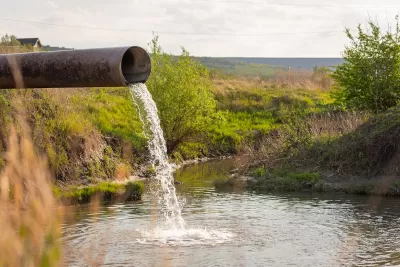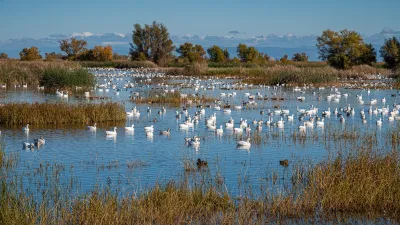A suit brought by the city of San Francisco argues that the agency’s language around water treatment and discharge is too vague and imposes retroactive penalties.

The U.S. Supreme Court appears poised to limit the Environmental Protection Agency (EPA)’s powers to set water quality standards for sewage and water treatment systems, according to an article by Michael Macagnone in Roll Call.
The case stems from a challenge by the city of San Francisco. “The case turns on how specific the EPA must be in National Pollutant Discharge Elimination System permits it issues under the environmental protection law. Currently, the permits place restrictions on both what San Francisco and others can discharge from their pipes and the quality of the water where the discharge goes.”
The city argues that the broad language in the EPA’s rules is too vague and faults the city for water quality failures that could be caused by other parties. “Dozens of organizations, ranging from the mining industry to homebuilders and farmers weighed in through court filings to argue that the EPA standards leave them guessing over whether they’ll face fines down the road.” Biden administration lawyer Frederick Liu countered that many of the requirements San Francisco calls ‘unfair’ are “actually obvious, like not allowing the water to become discolored.”
As Macagnone points out, “The case is the first in a series of cases this term where the justices agreed to hear challenges to environmental rules, and comes amid the current court’s long-running effort to rein in administrative agencies.”
FULL STORY: Supreme Court questions EPA water pollution permit powers

Study: Maui’s Plan to Convert Vacation Rentals to Long-Term Housing Could Cause Nearly $1 Billion Economic Loss
The plan would reduce visitor accommodation by 25,% resulting in 1,900 jobs lost.

North Texas Transit Leaders Tout Benefits of TOD for Growing Region
At a summit focused on transit-oriented development, policymakers discussed how North Texas’ expanded light rail system can serve as a tool for economic growth.

Alabama: Trump Terminates Settlements for Black Communities Harmed By Raw Sewage
Trump deemed the landmark civil rights agreement “illegal DEI and environmental justice policy.”

How Community Science Connects People, Parks, and Biodiversity
Community science engages people of all backgrounds in documenting local biodiversity, strengthening connections to nature, and contributing to global efforts like the City Nature Challenge to build a more inclusive and resilient future.

Alabama: Trump Terminates Settlements for Black Communities Harmed By Raw Sewage
Trump deemed the landmark civil rights agreement “illegal DEI and environmental justice policy.”

Dear Tesla Driver: “It’s not You, It’s Him.”
Amidst a booming bumper sticker industry, one writer offers solace to those asking, “Does this car make me look fascist?”
Urban Design for Planners 1: Software Tools
This six-course series explores essential urban design concepts using open source software and equips planners with the tools they need to participate fully in the urban design process.
Planning for Universal Design
Learn the tools for implementing Universal Design in planning regulations.
City of Santa Clarita
Ascent Environmental
Institute for Housing and Urban Development Studies (IHS)
City of Grandview
Harvard GSD Executive Education
Toledo-Lucas County Plan Commissions
Salt Lake City
NYU Wagner Graduate School of Public Service





























